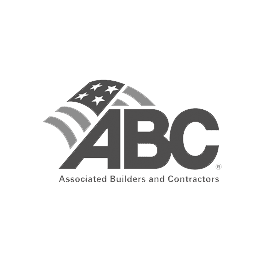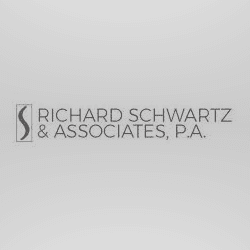FCRA Compliance
Federal Fair Credit Reporting Act (FCRA)
The FCRA directly affects areas as diverse as what information can be contained on a report, to what notifications to make to the subject prior to the criminal record inquiry.
Overview of The Fair Credit Reporting Act (FCRA)
Perhaps the “Fair Credit Reporting Act” is really misnamed. Perhaps it should be called the “Fair Credit and Employment Reporting Act.” The lack of “employment” in the title has contributed to the lack of understanding and knowledge of this law in employment screening. In general, the FCRA manages the relationship between the parties who are involved in informational transactions that fall under the Act. Usually, there are at least three affected parties:
- The provider of the information
- The subject of the information
- The user of the information
Important Definitions Within the Act
A Consumer Reporting Agency (CRA) is “any person which, for monetary fees, dues, or on a cooperative nonprofit basis, regularly engages in whole or in part in the practice of assembling or evaluating consumer credit information or other information on consumers for the purpose of furnishing consumer reports to third parties, and which uses any means or facility of interstate commerce for the purpose of furnishing consumer reports.” 15 U.S.C. §1681b (f)
A Consumer Report is “any written, oral, or other communication of any information by a consumer reporting agency bearing on a consumer’s credit worthiness, credit standing, credit capacity, character, general reputation, personal characteristics, or mode of living which is used or expected to be used or collected in whole or in part for the purpose of serving as a factor in establishing the consumer’s eligibility for: credit or insurance to be used primarily for personal, family, or household purposes; employment purposes; or any other purpose authorized under section 1681b, §1681a(d)(1).”
Employment purposes, when used in connection with a consumer report means “ a report used for the purpose of evaluating a consumer for employment, promotion, reassignment or retention as an employee.” 15 U.S.C. §1681a(h)
The Purpose of the FCRA
The purpose of the FCRA is to facilitate the flow of essential information concerning an individual’s background, while at the same time protecting that individual’s privacy rights and minimizing the risks of inaccurate reports. This is accomplished through the imposition of statutory and regulatory safeguards imposed on CRAs and the users and providers of the information. The regulations are designed to ensure the accuracy of the information being provided.
A failure to comply with the FCRA’s requirements exposes the CRA as well as the CRA customer, to both civil liability, 15 U.S.C. §1681o. Unlawful obtaining of information may result in criminal penalties, 15 U.S.C. §1681q.
Compliance with Investigative Consumer Reporting
By definition, an Investigative Consumer Report (ICR) is a consumer report which contains information on a consumer’s character, general reputation, personal characteristics, or mode of living (lifestyle) obtained through personal interviews. An ICR does not include information on credit obtained from a creditor, see 603(e). Because an ICR is a subset of a consumer report, all of the limitations mentioned in the FRCA Mandatory Limitations on Reporting by a CRA section also apply to ICRs.
Interviews with Subjective Information
The Federal Trade Commission (FTC), which regulates the FCRA, considers that the act of obtaining subjective information constitutes an ICR. A typical ICR performed by many CRAs is an employment or educational verification. However, not all of these types of checks are necessarily classified as an ICR. When the CRA merely verifies the dates of employment, job title, salary or degree earned, this act is not considered to be an ICR because no subjective information has been obtained. See FTC Letter Hinkle, July 9, 1998. However, if a CRA asks about the consumer’s job performance, such as whether the employer would re-hire a consumer, then the report becomes an ICR because the FTC considers this as obtaining subjective information.
Additional restrictions per FCRA §606
- A disclosure informing the consumer that an ICR may be obtained.
- Disclosure to be sent to consumer within 3 days of the request for the ICR. Practice note: the initial authorization and consent form may contain this notice. This notice also requires that the consumer be advised of his right to request disclosure of the nature and scope of the report and to request a copy of the summary of rights under the FCRA. For employment reports this again would be handled by the initial authorization and consent form and the initial providing of the summary of rights.
- Upon request by the consumer the end user shall provide disclosure of the report within 5 days of the receipt of the report. Practice note: a ICR may best be drafted by not naming the sources of information by name as the consumer is entitled to a copy of an employment report under §604. Edits are not permitted in these disclosures.
- Except as allowed by §613, an ICR may not provide public record information that has not been verified within 30 days of the report
- Information is not to be reported unless it is confirmed by an additional source that has independent and has direct knowledge of the information. Example: Interviewee states the subject hosts drug parties in his home. Before that is reported this must be confirmed by another source noted above. An exception to this is the source that is the best possible source of information. Example: In the case above, it could be an arresting officer or in the employment setting regarding the quality of the subject’s work the best source would normally be the former supervisor.
Additional Restrictions per FCRA §614
- All other information beyond public record information in the ICR cannot be older than 3 months.
States Can Have ICR Restrictions
Several states have similar statutes regulating ICRs. Where there are operational differences, they are noted in the look-ups in the State Rules Register under restrictions on CRAs.
All Rights Reserved. © 2017 Larry Henry, Esq. and BRB Publications, Inc. User’s subscription is a limited license to use the materials within this website. All materials are owned exclusively by the producers hereof: User may not sell, give away, reproduce by any means or store in a database or retrieval system, copy or transmit this material to any third party without the expressed, written consent of the copyright owner.
This product is collection of information on the subject of reportable/useable public record information. Please note that the Register is not to be considered legal advice. The facts in any situation may lead to a different result when statutes are interpreted by the courts. If you have specific questions in a state where you may have clients, you should contact a counsel within that state.
If you are using information we provide for “employment purposes” (which includes individual contractors and agents that are not traditional employees), you must follow the FCRA requirements listed below:
Before using our services
It is important to educate yourself. One important and well-written document to read is the Consumer Financial Protection Bureau “Notice to Users of Consumer Reports”.
Before the check
The background screening process is relatively simple for the applicant. First, you must give the applicant a disclosure form that informs him or her that you will obtain a consumer report for employment purposes. This disclosure must be separate from anything else, especially your employment application or any release of liability.
Second, the applicant must sign an authorization that permits you to obtain a consumer report for employment purposes.
The disclosure must be on a standalone form, separate from the authorization form. The rule of thumb for this is whether each sentence begins with either “We hereby disclose to you that …” or “You hereby authorize us to …”.
The primary purpose these forms serve is to comply with the FCRA. These forms also give the background screening company permission to do the check and may serve as verification to former employers or schools that they are allowed to give information.
To give you an idea of the importance, you can read the 2017 Ruling from the Ninth Circuit Ruled that Disclosures Containing Waivers Violated the FCRA and that a prospective employer’s violation of the FCRA is ‘willful’ when the employer includes terms in addition to the disclosure, such as the liability waiver here, before procuring a consumer report or causing one to be procured.
Where we obtain information for you based on an interview (for example, reference checks), you must also disclose to the subject that:
- You are obtaining an investigative consumer report, including information about character, general reputation, personal characteristics, or mode of living, (whichever is applicable), and
- He or she may obtain a description of the nature and scope of our investigation. If the subject requests that description, you must provide it within five days. Even though this is in the nature of the disclosure, you may want to put this information in your authorization, to protect the “repeatedness” of your disclosure.
Before the decision
After a reasonable period of time, no less than five business days, before making an adverse decision based on a report, you must provide the subject a copy of the report and the Consumer Financial Protection Bureau’s “Summary of Your Rights Under the Fair Credit Reporting Act”.
On the decision
When you make an adverse decision based on a report, you must:
- Notify the subject of the decision
- Notify the subject of our company name, address and telephone number
- Notify the subject that we did not make the decision
- Notify the subject that they can get another free copy of the report during the next 62 days
- Notify the subject that they can dispute any inaccurate or incomplete information in the report with us
In addition, many states (especially California) have additional requirements concerning your use of screening services.
- Sample Disclosure Forms
- Sample Authorization Forms
- FTC Summary of Rights
- Sample pre-adverse action notices
- Sample adverse action notices
- An overview of FCRA Employer Obligations
- An overview of how the Driver’s Privacy Protection Act of 1994 impacts the use of motor vehicle reports in consumer investigations
Contact us
To learn more about the comprehensive LaborChex system and how we can create peace of mind for your business.












